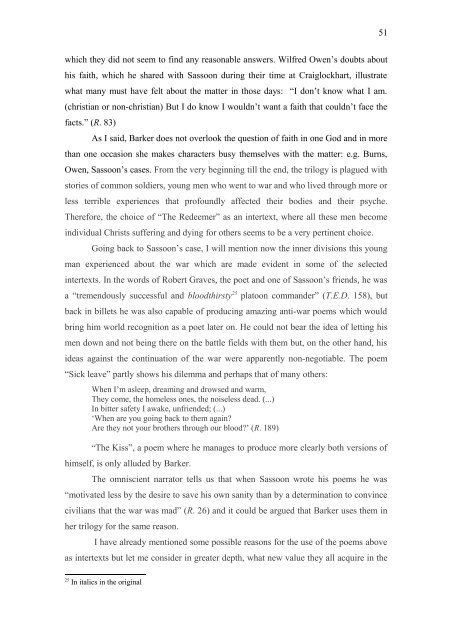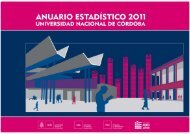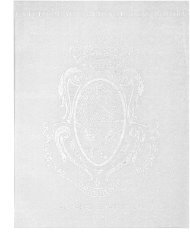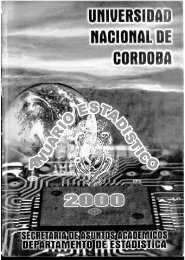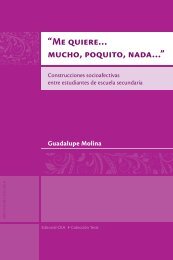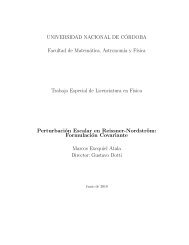Chapter I - RDU - Universidad Nacional de Córdoba
Chapter I - RDU - Universidad Nacional de Córdoba
Chapter I - RDU - Universidad Nacional de Córdoba
Create successful ePaper yourself
Turn your PDF publications into a flip-book with our unique Google optimized e-Paper software.
51which they did not seem to find any reasonable answers. Wilfred Owen’s doubts abouthis faith, which he shared with Sassoon during their time at Craiglockhart, illustratewhat many must have felt about the matter in those days: “I don’t know what I am.(christian or non-christian) But I do know I wouldn’t want a faith that couldn’t face thefacts.” (R. 83)As I said, Barker does not overlook the question of faith in one God and in morethan one occasion she makes characters busy themselves with the matter: e.g. Burns,Owen, Sassoon’s cases. From the very beginning till the end, the trilogy is plagued withstories of common soldiers, young men who went to war and who lived through more orless terrible experiences that profoundly affected their bodies and their psyche.Therefore, the choice of “The Re<strong>de</strong>emer” as an intertext, where all these men becomeindividual Christs suffering and dying for others seems to be a very pertinent choice.Going back to Sassoon’s case, I will mention now the inner divisions this youngman experienced about the war which are ma<strong>de</strong> evi<strong>de</strong>nt in some of the selectedintertexts. In the words of Robert Graves, the poet and one of Sassoon’s friends, he wasa “tremendously successful and bloodthirsty 25 platoon comman<strong>de</strong>r” (T.E.D. 158), butback in billets he was also capable of producing amazing anti-war poems which wouldbring him world recognition as a poet later on. He could not bear the i<strong>de</strong>a of letting hismen down and not being there on the battle fields with them but, on the other hand, hisi<strong>de</strong>as against the continuation of the war were apparently non-negotiable. The poem“Sick leave” partly shows his dilemma and perhaps that of many others:When I’m asleep, dreaming and drowsed and warm,They come, the homeless ones, the noiseless <strong>de</strong>ad. (...)In bitter safety I awake, unfrien<strong>de</strong>d; (...)‘When are you going back to them again?Are they not your brothers through our blood?’ (R. 189)“The Kiss”, a poem where he manages to produce more clearly both versions ofhimself, is only allu<strong>de</strong>d by Barker.The omniscient narrator tells us that when Sassoon wrote his poems he was“motivated less by the <strong>de</strong>sire to save his own sanity than by a <strong>de</strong>termination to convincecivilians that the war was mad” (R. 26) and it could be argued that Barker uses them inher trilogy for the same reason.I have already mentioned some possible reasons for the use of the poems aboveas intertexts but let me consi<strong>de</strong>r in greater <strong>de</strong>pth, what new value they all acquire in the25In italics in the original


